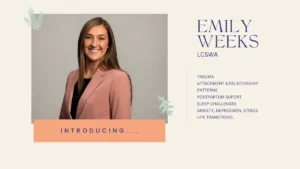Anxiety disorders affect millions of individuals across the United States, impacting their daily lives and overall well-being. In North Carolina, residents have access to a variety of therapy methods tailored to address these challenges effectively. Understanding these options can empower individuals and families to seek the support they need. Here, we explore some of the prevalent anxiety therapy methods available in the state.
CBT Strategies for Managing Anxiety in North Carolina
CBT is widely recognized as one of the most effective treatments for anxiety disorders. It focuses on identifying and changing negative thought patterns and behaviors that contribute to anxiety. Therapists in North Carolina often integrate CBT techniques into their practice to help clients develop coping strategies and gradually confront their fears in a structured manner.
Cognitive Behavioral Therapy (CBT) remains a widely recognized and effective approach to treating anxiety disorders in North Carolina. By equipping individuals with practical skills to challenge negative thinking patterns, manage anxiety symptoms, and gradually confront fears, CBT empowers clients to regain control over their lives and achieve lasting emotional well-being.
Exposure Therapy
Exposure therapy is another cornerstone of anxiety treatment, particularly for specific phobias and PTSD. In this method, individuals are gradually exposed to feared objects or situations in a safe environment. Therapists in North Carolina use exposure therapy to help clients desensitize to their fears over time, promoting resilience and confidence in managing anxiety triggers.
Exposure Therapy stands as a cornerstone of anxiety treatment in North Carolina, offering individuals a path towards confronting and overcoming their fears with professional guidance and support. Whether through gradual real-life exposures, imaginal revisiting of traumatic memories, or innovative virtual reality techniques, therapists in the state provide comprehensive care aimed at promoting lasting emotional well-being and resilience.
Mindfulness-Based Therapy
Mindfulness-based approaches, such as Mindfulness-Based Stress Reduction (MBSR) or Mindfulness-Based Cognitive Therapy (MBCT), emphasize present-moment awareness and acceptance. In North Carolina, therapists integrate mindfulness practices to help clients cultivate a non-judgmental attitude towards their anxiety symptoms, reducing reactivity and enhancing overall well-being.
Mindfulness-based therapy represents a valuable approach to managing anxiety that emphasizes present-moment awareness and acceptance. In North Carolina, individuals have access to trained therapists and programs that integrate mindfulness practices into treatment plans tailored to their specific needs. Whether seeking relief from chronic anxiety or learning new coping strategies, exploring mindfulness-based therapy can be a transformative step towards improving mental health and overall well-being.
Medication Management
For some individuals with severe anxiety disorders, medication prescribed by psychiatrists or primary care providers can be a crucial component of treatment. North Carolina offers access to licensed professionals who specialize in prescribing and managing medications to alleviate anxiety symptoms effectively.
Medication management represents a valuable tool in the comprehensive treatment of anxiety disorders in North Carolina. By consulting with knowledgeable healthcare providers and participating in therapeutic interventions, individuals can navigate their anxiety symptoms more effectively and achieve long-term mental health wellness.
Support Groups and Peer Counseling
Support groups provide a valuable opportunity for individuals with anxiety to connect with others facing similar challenges. North Carolina hosts various support groups facilitated by trained counselors or peers who offer empathy, validation, and practical coping strategies in a group setting.
Engaging in support groups and peer counseling can complement formal therapy and medication management, providing additional layers of support and encouragement in managing anxiety. Whether seeking validation, practical advice, or simply a listening ear, North Carolina’s vibrant network of support groups offers invaluable resources to enhance well-being and foster resilience in individuals facing anxiety challenges.
Integrative Therapeutic Approaches
Many therapists in North Carolina offer integrative approaches that combine different therapeutic modalities based on individual needs. These may include art therapy, yoga therapy, or narrative therapy, providing diverse avenues for clients to explore and address their anxiety.
Art Therapy
Art therapy harnesses the creative process to explore emotions, reduce anxiety, and enhance self-awareness. In North Carolina, licensed art therapists utilize drawing, painting, and other artistic mediums to help clients express feelings that may be challenging to verbalize. The process of creating art can promote relaxation, mindfulness, and emotional healing.
Yoga Therapy
Yoga therapy integrates physical postures, breathing exercises, and meditation to alleviate anxiety symptoms. Therapists in North Carolina incorporate yoga techniques tailored to individual needs, emphasizing the mind-body connection to reduce stress and promote emotional balance. Yoga sessions may also include relaxation techniques that enhance overall well-being.
Narrative Therapy
Narrative therapy focuses on the stories we tell about ourselves and our experiences. Therapists in North Carolina use narrative techniques to help clients reframe negative narratives that contribute to anxiety. By exploring and reconstructing personal stories in a supportive environment, individuals can gain new perspectives, strengthen resilience, and cultivate a sense of agency in managing anxiety.
Holistic Approaches
Holistic therapies in North Carolina encompass a range of practices that consider the interconnectedness of mind, body, and spirit in anxiety treatment. Therapists may incorporate techniques such as acupuncture, aromatherapy, or herbal remedies alongside traditional talk therapy. These holistic approaches aim to address underlying imbalances and promote holistic well-being.
Mind-Body Medicine
Mind-body medicine approaches in North Carolina emphasize the relationship between mental and physical health. Therapists may utilize techniques like biofeedback, progressive muscle relaxation, or guided imagery to teach clients how to control physiological responses to stress and anxiety. By fostering awareness of mind-body connections, individuals can learn to manage anxiety symptoms more effectively.
Conclusion
Finding the right therapy method can make a profound difference. At Renewed Wellness Counseling, PLLC in NC, we offer a range of effective anxiety therapy options tailored to individual needs. From cognitive-behavioral therapy to mindfulness practices, our goal is to empower clients with tools that foster resilience and mental well-being. Each therapy method is thoughtfully crafted to provide a supportive environment where healing and personal growth can flourish.
For more information on how our anxiety therapy methods can help you or a loved one, please contact Renewed Wellness Counseling, PLLC at 252-505-8150. Our dedicated team is here to support you on your journey towards renewed mental health and well-being.








